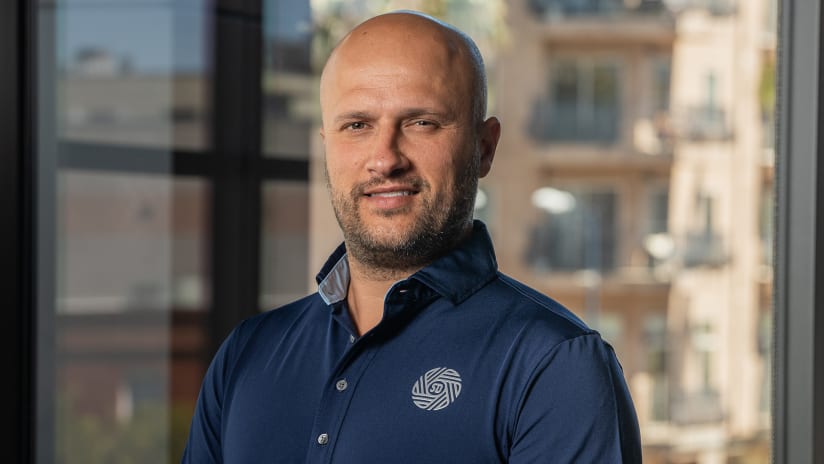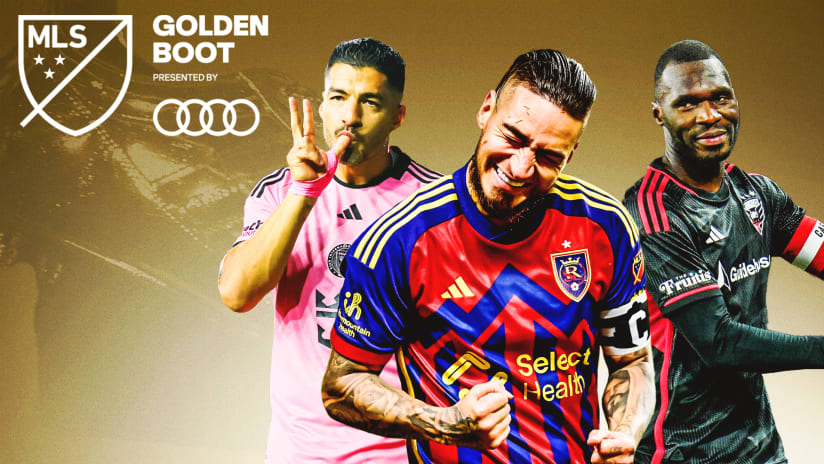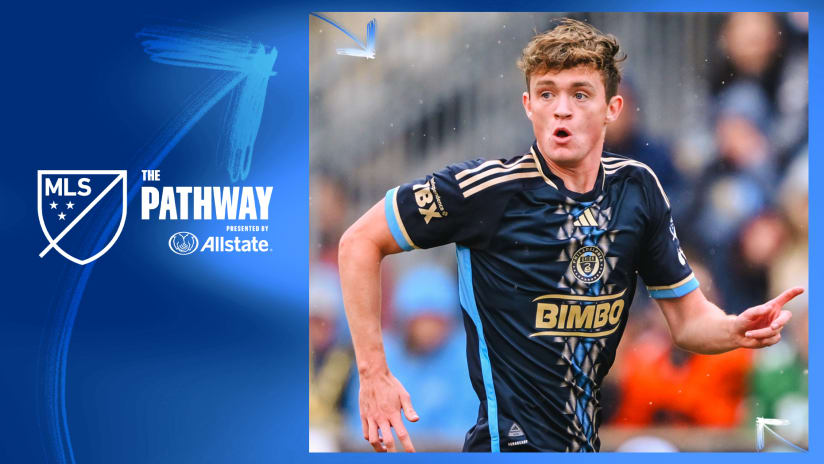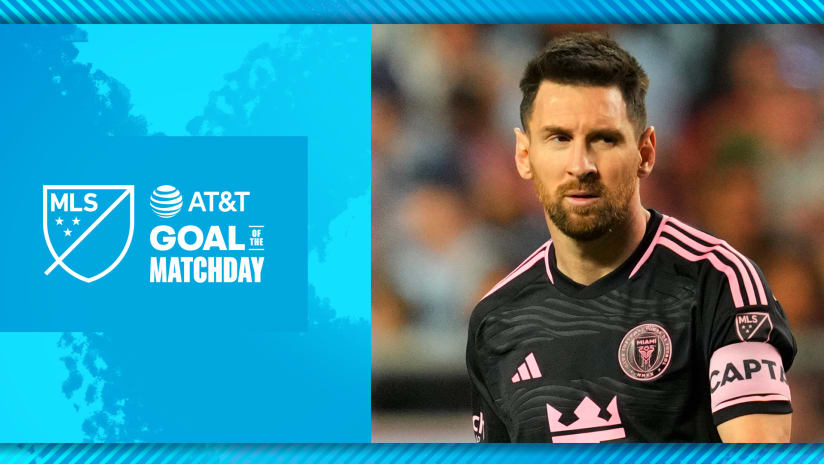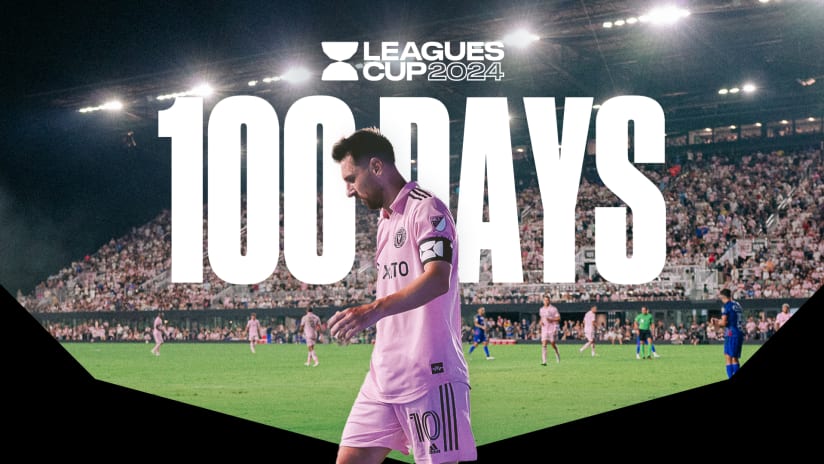not Bob Bradley or Bruce Arena.
Yes, Bradley has been a head coach longer -- he's in his eighth season in the league, but he has guided two teams -- Chicago Fire and MetroStars.
"It's a nice thing for me," Gansler said. "I'm glad I'm here today to get the opportunity to do what I really care to do."
Since taking over for Ron Newman on April 28, 1999, Gansler has directed the Wizards to a 73-69-42 record in 184 regular-season games, which includes an MLS Cup championship (2000) and an appearance in the final last season. The Wizards have never failed to reach the playoffs under Gansler.
"I never really thought about it," Gansler said. "Just glad I got the opportunity. I thought I was overlooked initially for whatever reason."
That's right. The man who guided the United States into its first World Cup appearance in 40 years in 1990 was passed over as a head coach when the league started up with 10 teams in 1996, expansion two years later and then subsequent firings.
"I was up for a position but there were more than 10 guys who were capable of doing that," Gansler said. "When Kansas City -- Mr. (Lamar) Hunt; Doug Newman was the guy who called -- gave me the opportunity, I was thankful and I will continue to be thankful. I think I was capable before I got the chance. The idea is to be prepared when you do get. I feel I have been competent."
Gansler's first coaching position at a Wisconsin high school was "for beer money" while he was a sophomore at Marquette University. He went on to teach history at Marquette High School, creating the boys soccer program.
Before he decided to take up coaching full time, Gansler's playing career included 25 national team performances and captaining the U.S. sides that failed in its quest to make the 1964 and 1968 Olympics and the 1970 World Cup.
Something lured Gansler to the sidelines.
"The ultimate satisfaction and the ultimate thrill in this game is playing," he said. "When the time came, and it comes for every player, you need to say adieu. The closest thing that was there was coaching. I had been coaching while I was playing. I liked it and I enjoyed it. Coaching that early helped me understand the game better and see it from a different perspective, a perspective of the other players, not just from my position.
"Coaching -- I heard it somewhere, I didn't make it up -- it's teaching in short pants.
"Your subject matter is the game and you're interacting with talented young players, talented young students, people who are eager to learn. You get a lot of satisfaction from what they're doing."
In 1989, Gansler gained some satisfaction by directing the likes of Tab Ramos, John Harkes and Marcelo Balboa -- who will be inducted into the National Soccer Hall of Fame in August -- and former Wizards goalkeeper Tony Meola into the 1990 World Cup.
The Americans were eliminated, losing all three games and scoring but twice. But their appearance helped spark a new era for soccer. The U.S. is on track to clinch its fifth consecutive World Cup bid later this summer.
After Italia '90, Gansler found himself without a coaching job because there was no serious pro league in the U.S.
"That was the sad part about our participation in the World Cup because players and coaches, we had no place to go afterwards," he said. "A few guys to their credit, Tab, Harksie and (Paul) Caligiuri, they went to Europe and had a place and showed they were worthy of a place there.
"The rest of us, there was no league here. That was unfortunate. C'est la vie."
Gansler was director of coaching for U.S. Soccer from 1991-95, before leading the Milwaukee Rampage to the 1997 A-League title. He waited patiently to get his chance.
It came in April 1999, replacing Ron Newman while inheriting an 0-7 team and one heckuva challenge.
"It was," he said. "But you are waiting for the opportunity. When that opportunity came, Doug Newman called, thanks, see what we can do.
"I always felt, and this is where I sometimes disagree with you folks in the media, you talk about what the coach wants, what system, what style and all of that. I think the competent coach looks at what he has and says, 'Now, what is the best I can do with the players that have been dealt me here?' This is what I did here in Kansas City. I think anybody else would have done the same thing. It's not about bemoaning what you don't have, it's what you have."
Gansler felt he had a solid foundation with which to work -- Mo Johnston, Preki, Uche Okafor and Chris Klein.
"From Day One, they were a joy to work with," Gansler said. "Obviously, some of the other teams in the league might have had a little bit more of the talent. Hey, it was something I looked forward to. For sure we laid the groundwork for the years to come."
The Wizards went 8-17 under Gansler, finishing at 8-24, only to be outdone by the hapless MetroStars (7-25). Gansler rebuilt the team, bringing in the likes of Danish striker Miklos Molnar and leaping from last to first in the Western Conference behind a 16-7-9 mark and upending the Fire 1-0 in MLS Cup 2000.
"It was exhilarating," Gansler said. "You know me long enough. I am not a handstand or cartwheel kind of guy. But that doesn't mean that I don't get my satisfaction or my job. For sure that rates right up there with the high points. We came awfully close to maximizing -- getting the most out of ourselves and each other. From day one to the end of the season, we had pretty much the best record and we were able to sustain an awfully good performance. "
On the bookcase behind his desk in his office at Arrowhead Stadium, Gansler displays photos of three men who have influenced him -- the late Walt Chyzowych, Dettmar Cramer and Rinus Michels.
"Every coach I've ever played for, you get consciously or unconsciously, something from them. People say your coaching portfolio, what does it consist of? Well, I've begged, borrowed or stolen from everyone I've played for or coached with."
Gansler credited Chyzowych, the one-time U.S. national coach, with bringing him to the national scene, hiring him as assistant national coach in 1975.
"We were pretty close in age," he said. "We did a lot of things together. One of the great things with Walt was that not only did he want you, but he demanded you speak your piece and have your impact. At the end of the day, obviously, the decision was his."
Cramer came over to the U.S. coach the national team in 1974. However, Cramer broke his four-year deal a year later to direct Bayern Munich. Still, Gansler could not forget the German's impact.
"I remember (taking) the B license in Milwaukee in '74, pen in hand, notebook ready," he said. "I listened to the man for hours and hours. I was enthralled. I never wrote anything down. It was his manner, his whole ambiance, the way he looked at the game, presented the game. It was a realistic, but intelligent way of approaching things, a lot of the things that helped me along the way. Goes back to the notes I didn't take, but the feeling I started to get for coaching and interacting with players."
Michels, who died on March 3, is credited with inventing "Total Football" with Ajax and the Dutch national team. Gansler secured Michels' part-time services to teach U.S. coaches in 1991.
"FIFA did not name him the coach of the century for nothing," Gansler said. "I mean, the man is the ultimate coach. ... Rinus Michels was a teacher of the hearing impaired when he took the full-time job at Ajax. There is a teaching aspect to this. Not only coaching has some importance, but coaching education is important.
"We all need heroes no matter how old we get."
Gansler has forged a reputation as a coach who can organize teams well and usually build a solid defensive system. His coaching philosophy, however, is far from it.
"Philosophy is too highfalutin' of a term," he said. "I think it's about common sense. Obviously you need talent, you need passion in order to play the game. You also need that to coach, to be a good administrator or to be a good journalist. You need the wherewithal to do it and you need to care. That's what I talk to my players about. Then we try to get the best out of each other.
"If that fits the definition of philosophy, then so be it. I think it's just common sense. It's a simple game. You've going to have to attack and you're going to have to defend. It's all about the ball. Find the best way for your group to do it."
Michael Lewis writes about soccer for the New York Daily News and is editor of BigAppleSoccer.com. He has covered MLS since its inception, including the league's unveiling at the 1994 World Cup draw in Las Vegas. He can be reached at SoccerWriter516@aol.com. Views and opinions expressed in this column are the author's, and not necessarily those of Major League Soccer or its clubs.


